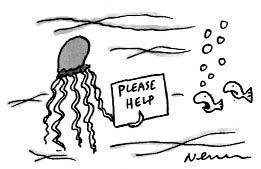One of the things I’ve belatedly realised now I’ve acquired the wisdom of age is that I’ve always been anti-establishment.
One of the things I’ve belatedly realised now I’ve acquired the wisdom of age is that I’ve always been anti-establishment. If only I’d known this at school I would have had far more fun than I did because I wouldn’t have wasted any of my time trying to smarm and behave my way into pointless jobs like ‘library prefect’, ‘group leader’ and ‘head of house’. I could have got drunk and smoked fags and got to at least third base with the naughty girls, like all the cool kids did, instead.
My problem was — and still is to some extent — that I am way, way too trusting and naive. I had it in my head that so long as you kept your nose clean, put in the hours and worked your way diligently up the ladder, eventually you’d become part of the establishment; and also — the most risible part — that this establishment was good and made the world a better place. This was reflected in the stories I used to write: always I ended up as the Prime Minister, Sir James Delingpole, VC — or similar. Never was I some louche underdog battling for the cause of the rebellious and free against the overweening power of Big Government.
Indeed, I remember once astonishing my French teacher, M. Filho, with my response to Anouilh’s Antigone. The play, so far as I can recall, revolves around some incredibly abstruse point about the burial of bodies after a battle. Antigone wants to give her brother a proper burial. King Creon, her uncle, refuses because that’s the rule he’s just made. So Antigone, impetuous, determined, principled and bloody stupid if you ask me, goes ahead and does it anyway. And Creon has to kill her.
Everyone else in the class sucked up to M. Filho by pretending to be moved by Anti-gone’s indomitable heroism. I thought she was an insufferable prig who got everything she deserved. ‘I don’t believe it!’ expostulated M. Filho. ‘You are so young. ’Ow can you be so ceenical?’ But it wasn’t Creon’s side I was particularly aligning myself with. More the side of rationalism. The brother was dead so he was hardly going to mind whether or not he was properly buried. Antigone was throwing her life away to prove a point of almost immeasurable triviality. Or so it seemed to me, anyway.
And of course, by being the only one in the class to rebel against the ‘correct’ response I wasn’t the heartless authoritarian M. Filho claimed I was. I was in fact the true voice of liberty: of sod you, I’ll do as I damn well please, because what’s right is right and there’s an end to it. I was Antigone and everyone else was Creon. Ha!
I get this rebel streak from my parents, I think: both of them are relentless piss-takers. They hardly ever did that ‘Come on, you can do it, son!’ positive, uplifting stuff that apparently parents are supposed to do. Instead they took the mickey. We all did. Every meal, every holiday, every social interaction my brothers and sisters, parents and step-parents had with one another, pretty much, was just an endless round of teasing and joshing and winding up and baiting and sarcasm. No wonder I felt so alien when I went back to school and encountered all those scrubbed, do-gooder children with proper parents and nice manners and cricket skills who didn’t even have to try to get made prefect. It was a given. They were born to it.
Also I’m from the Midlands — Black Country on the one side, Birmingham on the other — and mickey-taking’s our national sport. I think it’s a function of growing up in an area where people originally got their money from coal and steel and heavy industry. We’re really not impressed by airs and graces and unmerited authority. If you’re local and you’ve made it then good on you arkid, but don’t expect us to treat you any different: we know where you came from.
But still I spent my early life in denial of all this. It got particularly bad at Oxford when, properly exposed to my first Etonians — such as a certain current Prime Minister of ours — I spent three years beating myself up for having not been born a toff. If only I’d known then — as I totally and unapologetically appreciate now — that my roots are my greatest strength, I would have been so much happier in my skin. Probably got a lot more sex than I did, too, come to think of it.
Still, better late than never eh? Here I am at last, 45, and a fully paid-up member of the anti-establishment. I’m there with mavericks like Rod Liddle, Christopher Booker, Stuart Wheeler: an eclectic bunch I couldn’t be prouder to call my friends because all of them in their way — yes, even Rod — are men of tremendous moral courage and damn-the-torpedoes cussedness.
Whereas the people who actually belong to the establishment, in my experience, are not. That’s how they got to be part of the establishment. Council chief executives, multinational CEOs, professors, politicians, police chiefs, senior generals, editors and so on. All too often they didn’t get where they are being the most talented at what they do, but by being that bit more devious, more power-hungry, more willing to sacrifice their principles in order to shinny up the slimy pole.
When I attack the government’s stupendous ineptitude — as I so often find myself doing these days — the glib charge sometimes laid against me is that I’m jealous of all my posh old Oxford friends and my failure to emulate their success. ‘Yeah right,’ I think, smiling inside at the absurdity of the suggestion. ‘Just goes to show how little you know me!’







Comments